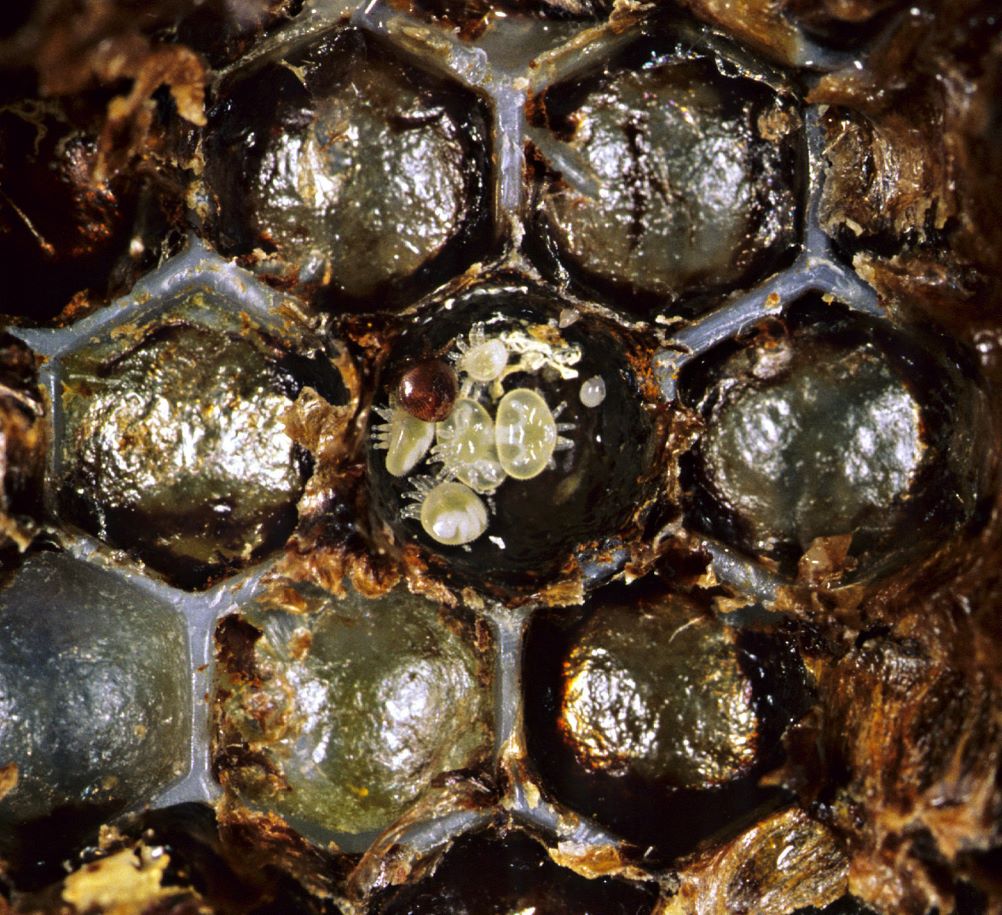Beekeepers will seek millions of dollars in compensation in a potential class action against the NSW and federal governments after their hives were destroyed in a bid to stop the varroa mite.
Devastated keepers say existing compensation payouts are inadequate and fail to take into consideration the impact of the forced destruction on their income and other agricultural sectors that rely on beekeeping
The deadly varroa mite was first detected near the Port of Newcastle in June 2022, leading to more than 14,000 hives being euthanised in the following four months as authorities tried to halt the spread.
The parasite has since been detected around Newcastle, on the northern NSW coast near Coffs Harbour and hundreds of kilometres inland.
Keepers are seeking up to $140 million from the state and federal government over a “vain undertaking of eradication” that has never been achieved anywhere else, class action lawyer Stewart Levitt said.
“They’re not only destroying the beekeepers, they’re also threatening other industries in the agricultural and horticultural sector, and they’re doing it because of misguided and misconceived optimism which wasn’t accompanied by a fair and just attitude to compensation,” he said on Friday.
Some businesses have been crippled after their unaffected colonies were eradicated because they were located in emergency eradication and surveillance zones.
Mr Levitt said 100 “highly motivated and very angry” people registered their interest in the class action during a meeting on the state’s central coast to gauge reactions.
Agriculture Minister Tara Moriarty said she wasn’t aware of the potential class action, but her department was holding meetings with industry bodies on plans to move hives out of new affected zones on the border of NSW and Victoria.
With a varroa detection in the Sunraysia region on the southern border of NSW, beekeepers in Victoria are on high alert despite the mite not yet detected there.
Mr Levitt left the door open to the class action also incorporating interstate beekeepers if the parasite jumped the border.
“It depends on how contained the spread is in Victoria, but if it continues to proliferate then (it depends) if they adopt a similar compensation mechanism,” he said.
A federal Department of Agriculture spokeswoman said the honey bee industry council was a signatory to an emergency response deed that laid out the management and funding of the response to pest incidents.
“The (compensation amounts) for the honey bee industry were reviewed in August 2022 and (the industry) was consulted and supported the review outcomes,” she said.
The varroa mite mainly feeds and reproduces on larvae and pupae, causing malformation and weakening of honey bees as well as transmitting numerous viruses.
Australia is the only major honey-producing country that is largely free of varroa mite, considered the most serious pest affecting bees worldwide.
The NSW Department of Primary Industries has been contacted for comment.
By William Ton in Sydney
Get local, national and world news, plus sport, entertainment, lifestyle, competitions and more delivered straight to your inbox with the Canberra Daily Daily Newsletter. Sign up here.



